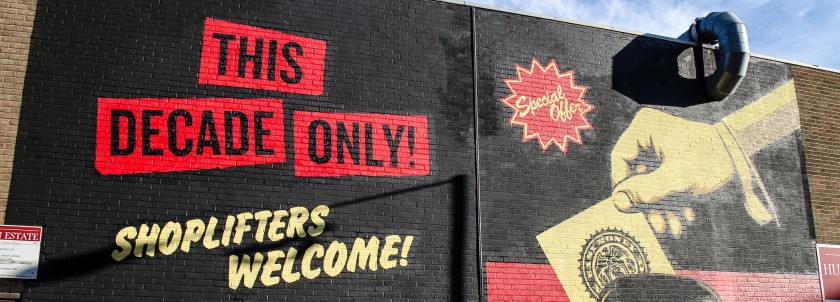Giving It Away – The Art Of The Special Offer

Now that you’ve set a price for your services or products, you’ve got scope to do some special offers or discounts for the customers you want to attract.
There are lots of different ways of providing incentives for people to become customers, or to bring back the customers you want to buy from you again. Keep your eyes open for what other people are doing. Can you spot the special offer that The Joy of Business uses to bring in new customers? Yes, I let you buy me coffee and cake!
Over the last few years, Boots the Chemists has become masters of the special offer, especially since their hold on the market has been eaten into by the voracious supermarkets. Wander round Boots and see what they’re up to – you’ll see Buy One Get One Free (making you spend twice as much money as you meant to, and helping Boots’ cashflow) money off coupons given out at the till, Advantage Points to encourage customer loyalty and all sorts of offers.
Here are some of the main ways of generating new business using special offers and discounts.
Bundling
You probably have several things that you sell. You might sell web site development and Search Engine Marketing, or you might sell training courses and one to one coaching. One of these will be easier to sell than the other. You can take the two things, and put them together in a bundle, so that the overall price is lower than what the customer would pay for these things individually. The customer feels that they’ve got a bargain, and you’ve got double the amount of work coming in.
Microsoft have, of course, taken this to extremes, so that you get a whole bunch of software together (Microsoft Office, for example) and you pay far less than you would if you bought the software individually. Microsoft got into trouble for going too far with this approach and was taken to court because they used bundling to put their competitors out of business. However, as long as you can be sure that everyone wins from what you offer, bundling is an ethical way of building your business.
Time limited special offers
Everyone loves a bargain. People can often be reluctant to put their hands in their pocket and buy what you’re offering. You can use these aspects of human psychology to encourage people to buy from you. By telling people that they get money off if they book now, or buy now, you can gently push the people who want to buy, into actually signing up.
The classic example of this is if you’re organising an event, make sure that you get publicity out well in advance and offer a substantial discount for booking before a certain date. This means that you reduce your stress levels about whether or not you’ll have people coming along, and you’ve got the lovely money sitting in your bank account, which helps your cashflow.
It also means that you can use our next clever marketing technique when you get to the next stage…
Everyone’s doing it
People don’t want to be the only person who’s doing something or buying something. People buy books because they’ve seen other people reading them, or because they’re number one in the bestseller market.
If you want to do a fun experiment, go onto Western Road in Brighton with a friend, and both stare and point up to the sky. Notice how many people will stop and stare as well, trying to find out what you’re looking at. People will copy what you’re doing.
So in marketing, we want to encourage people to think what we’re selling is popular. In fact, it might be so popular that your potential customer gets worried that they’ll miss out.
This might be making sure that people think that you’re busy with lots of clients, telling people that you only have 25 boxes of stock left or that places on your course are booking fast.
There are lots of ways that you can make sure that plenty of business comes your way. If you want to read more about the psychology of marketing, read Influence by Robert Cialdini – it’s a great book that will help you through marketing, and give you some tips to boost your own business.
Photo credit – This decade only by Garry Knight, from Flickr on a creative commons licence


